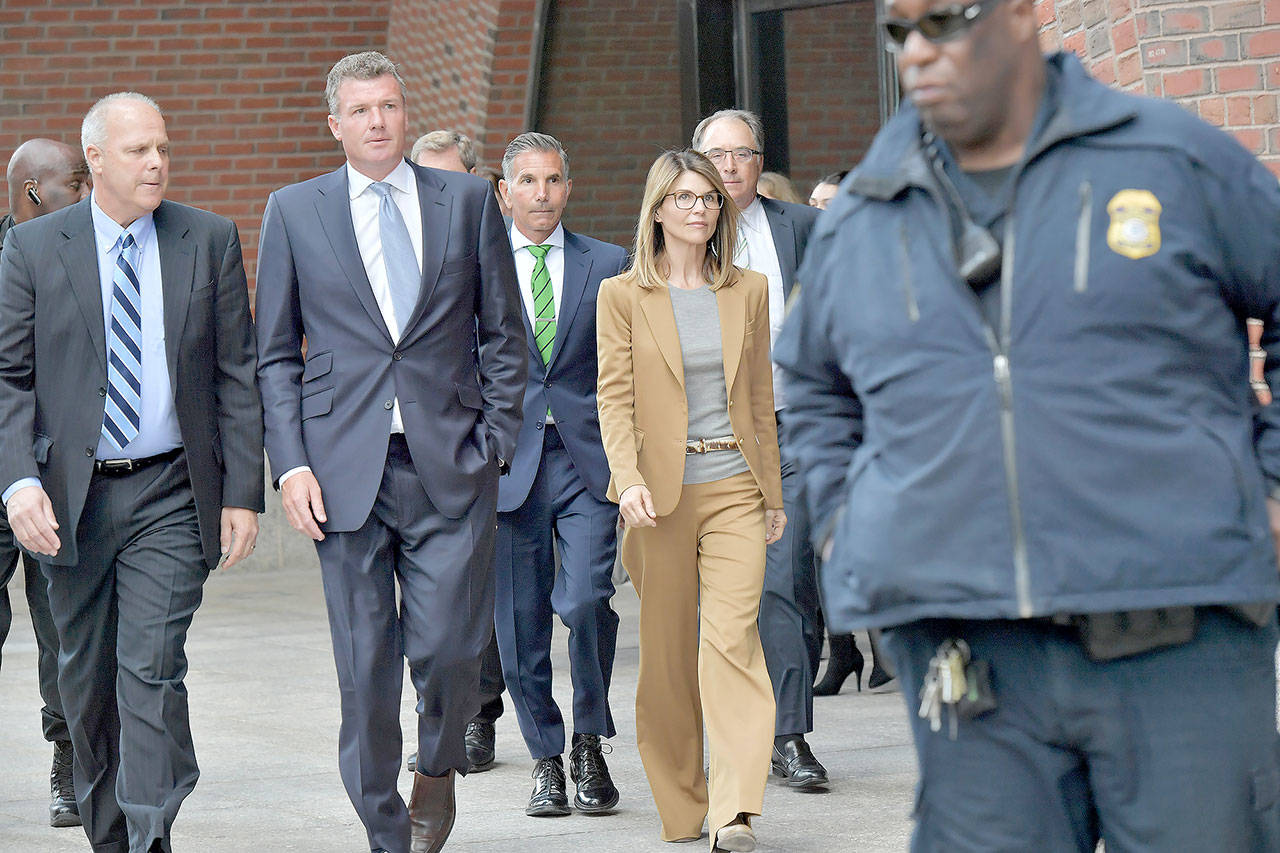LOS ANGELES — Actress Lori Loughlin has lost acting gigs and been the subject of public wrath after being charged in the college admissions scandal.
But beyond the court of public opinion, how strong is the legal case against Loughlin and her fashion designer husband?
That is the question her legal team is now trying to answer.
Loughlin and her husband have refused to plead out to federal charges, and it appears they aren’t in any hurry to do so as their legal team hunts for errors in the prosecution’s case.
“Her attorneys have made it clear that they are not going to be rushing into any deal with the prosecution,” said Louis Shapiro, an experienced federal litigator. “They want to perform a thorough analysis of the evidence and then help their client make an informed decision about what is in her best interest to do.”
The couple feel they were genuinely duped by William “Rick” Singer, the admitted mastermind of the scheme, into paying $500,000 to help get their daughters into USC, according to a source familiar with the negotiations.
Loughlin and her husband, Mossimo Giannulli, had no sense they were engaging in any kind of crime, hence their not guilty pleas and continued reluctance to plead out, said the source, who spoke to The Times on the condition of anonymity.
The couple’s legal team includes Sean Berkowitz, who as a federal prosecutor handled key parts of the Enron case.
Loughlin and Giannulli are accused of paying $500,000 to have their two daughters admitted to USC as crew recruits. Though neither is a rower, the parents saw being a coxswain as their daughters’ ticket into the private college, according to an affidavit filed in federal court. USC’s admissions rate is 13 percent.
Authorities allege the couple agreed to take advantage of what Singer called his “side door” into the university by bribing USC senior associate athletic director Donna Heinel to designate their daughter as an athletic recruit on the crew team. Heinel is also charged in the scheme and has pleaded not guilty.
The money that authorities say eventually made its way to college coaches involved in the scam was funneled through Singer’s charity, whose stated mission was to help “underprivileged students.” This allowed some of the parents to write off the bribes as donations on their taxes, authorities said.
After their older daughter’s admission was secured, they repeated the scam in 2017 with their younger daughter, Olivia Jade, authorities allege. Singer allegedly told the couple he would present their daughter as a crew coxswain for the L.A. Marina Club team and requested they send an “action picture.” The couple sent him a photo of Olivia Jade rowing on a machine, according to the affidavit.
Shapiro said it is likely that Berkowitz “will try to find evidence that shows that Loughlin was not aware of the underlying conspiracy and extent of the alleged fraud being perpetrated by Singer.”
At the very least, the legal team will seek to exclude the couple’s recorded discussion with Singer about their daughters.
“Maybe she found out about the conspiracy close in time to the recorded calls and was not aware of it at the time of the commission of the alleged offense,” Shapiro said.
Legal experts say the real nature of the events may eventually help the couple convince a judge and jury that prison isn’t what they deserve.
Lara Yeretsian, a criminal defense attorney who was part of Scott Peterson’s and Michael Jackson’s legal teams, said if Loughlin and Giannulli are willing to risk it, they may find jurors and a judge more sympathetic than prosecutors.
Loughlin’s tactic differs from that of another actress in the scandal, Felicity Huffman.
In announcing she would plead guilty, Huffman took pains to make clear her daughter didn’t know.
“I am ashamed of the pain I have caused my daughter, my family, my friends, my colleagues and the educational community,” she said in a statement. “My daughter knew absolutely nothing about my actions, and in my misguided and profoundly wrong way, I have betrayed her.”


